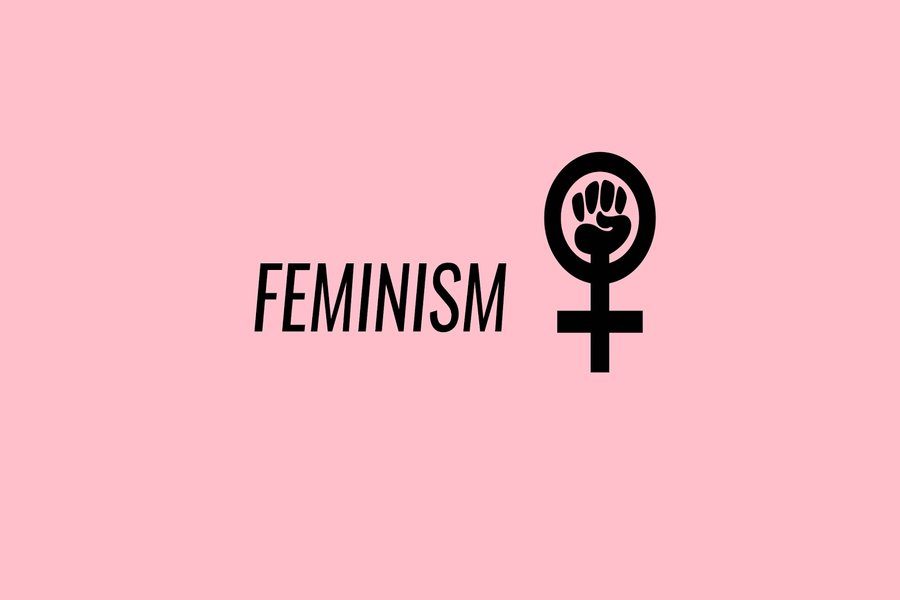Feminism: Promoting Gender Equality
Feminism, as defined by the Britannica dictionary, is the belief in the social, economic, and political equality of the sexes. This belief has been around as early as the 19th century, but it has recently gained a negative connotation.
Feminism is not the uplifting of solely women. It is not stating that women are better than men, nor is it stating that all men are beasts. That is the complete opposite of feminism.
Now that that has been clarified, it’s time to move a bit deeper into this broad topic and ask some questions that all start with the same inquiry: why? Why do women promote feminism? Why is feminism needed? Why advocate for equality between sexes when women have voting rights and whatever else that men also have?
It’s actually not that simple.
There’s statistics to prove that simply equal rights isn’t the issue. White women make 84% of what white men make, according to the Pew Research Center. Imagine how much lower the numbers go for women of color.
Now, let’s move onto the more political section of feminism.
Until 1965, not all women were able to vote in America. For 78% of our country’s history since 1776, not all women were able to vote. In present time, women struggle to be taken seriously in political ordeals.
In 2016, many men in office said that Hillary Clinton was too crazy and emotional to run for office. Donald Trump, our president, was one of these men. Publicly, he said that Clinton was “unstable,” “insane,” and “lacking the equilibrium required to be an effective president,” because someone who blames Democrats for the country’s issues on Twitter is definitely an effective president.
In the 2018 midterm elections, women made history. Democrats Sharice Davids and Deb Haaland were elected to the United States House of Representatives, being the first two Native American women in Congress. Democrat Rashida Tlaib and Ilhan Omar, a member of the Minnesota Democratic-Farmer-Labor Party, also became the first Muslim women in Congress. Additionally, Omar also became the first Somali-American in Congress, having come to the US as a refugee more than two decades ago.
Despite this progression in female representation, there’s still more misogyny in society.
Men are able to walk to their cars alone without fear of being harassed. Men are able to care less about someone of the opposite gender walking behind them. It may not be obvious at first, but these are privileges that are almost exclusive to men.
Women walk with their keys in their hands in case they need a quick weapon to defend themselves. Many carry pepper spray or mace. Many are paranoid when a car slows down by them on the street.
Feminism isn’t just about wanting equal rights. It’s about wanting to be seen as something other than a frail and inferior being. It’s about wanting people to be able to do and like “feminine” things without being seen as weak.
For example, men are seen as weak if they cry or show any sign of grief. Men are seen as incapable of good parenting, because it’s a “woman’s job.”
This isn’t the worst of it, unfortunately. It only gets worse in third world countries, where women can even be sold off to a man. They do not get a say in this, even if their husband beats them. Young girls are also forced into marriages, where their husband will permanently have total control over them. In the 1920s, this kind of domestic violence was made illegal in America, but it was treated as simple family matters until the 1970s. Child marriage has yet to be against the law in America, though.
In America, at least, women do have the basic rights that men have. Despite this, gender-based discrimination hasn’t faded. It has just integrated into the “norm” for today’s society.
Your donation will support the student journalists of Tunstall High School. Your contribution will allow us to purchase equipment and cover our annual website hosting costs.

Jennifer Sams is a junior, and this is her first year on the Trojan Messenger staff. Currently, she is involved with BETA, Interact, Art, Robotics, and...










